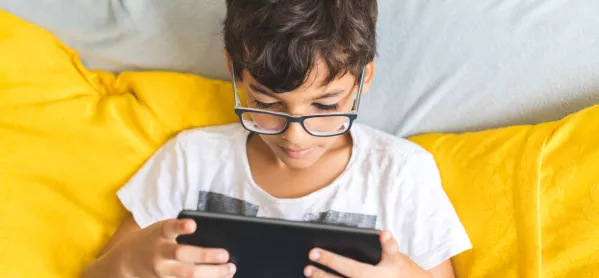Technology has replaced books at bedtime, with more than a quarter of parents turning to home assistants, apps and voice notes to tell their child a story in the evening, research suggests.
A study commissioned by children's reading charity BookTrust indicates a growing reliance on digital storytelling, with 65 per cent of parents admitting to allowing their children to view YouTube or content on a smartphone, tablet or TV instead of sharing a bedtime story.
Research: Bedtime stories help pupils find happy endings
Hay Festival: 64 books to inspire reluctant readers
Opinion: 'We can't let education fall victim to edtech'
The survey of 1,000 parents with children aged 10 or under found that, while almost half (49 per cent) say they aim to share a story with their youngsters every night, only 28 per cent manage to do so.
Three in 10 (31 per cent) say work or commuting prevents them from getting home in time, while one in five simply feel "too busy".
One in four (26 per cent) UK parents say they have tried to use tech, such as virtual assistants, for bedtime stories, the poll conducted by Fly Research found.
Bestselling children's author Francesca Simon, creator of the Horrid Henry series, said there was no substitute for real books.
"I think people are really missing the point of what this is all about," she said. "This is an incredible time to share stories and to read together."
For parents who do read stories with their child at night, more than half (53 per cent) say they would choose to use a smartphone, tablet, app or YouTube for the task.
However, 83 per cent of parents say they generally use print books.
Gemma Malley, director of BookTrust, said: "Life has never been busier, and many parents are finding it harder and harder to fit in bedtime stories.
"I know from experience that it can be tempting to replace reading to your child with time on a device, but swapping books for tech can have profound consequences.
"However, just 10 minutes of reading a book together a day makes such a difference – it helps build children's language, resilience, confidence and imagination, and is an amazing way for families to bond."




